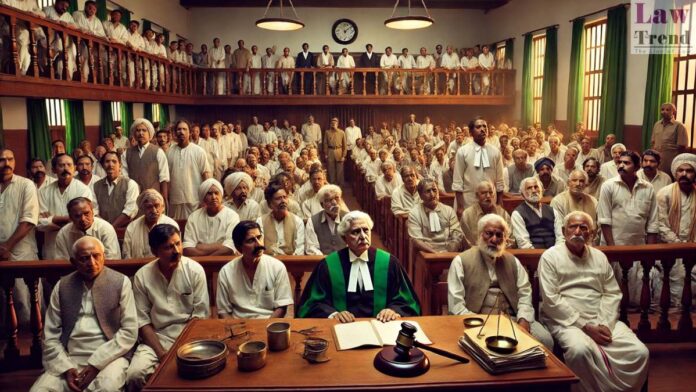In an ambitious move to address the growing backlog of cases in district courts across India, the Ministry of Law and Justice is planning to establish 785 evening courts. This initiative aims to utilize existing court facilities during the evening hours to handle minor criminal cases, property disputes, check bounce issues, and other matters where the maximum provision is a three-year sentence.
A concept note prepared by the ministry, circulated to all states last month, outlines the plan. These evening courts will operate within the regular court complexes from 5 PM to 9 PM on working days. The arrangement ensures that regular court proceedings continue uninterrupted during the day, with facilities being shared with the evening courts post the day’s sessions.
The proposal suggests appointing retired district judges from the past three years on a contractual basis to preside over these courts. They will receive 50% of their last drawn salary as remuneration along with other allowances. Additionally, retired court staff will also be employed under three-year contracts, receiving their last salary and cost of living allowances.
The focus of the evening courts will initially be on minor criminal cases punishable by up to three years. Plans to eventually include cases punishable by up to six years are also under consideration. According to a senior official from the Odisha Law Department, the courts will handle cases under Section 260 of the CrPC-1973, the Negotiable Instruments Act, and minor public nuisance cases.
The government’s goal is to significantly reduce the number of pending cases by focusing on minor criminal matters, thus alleviating public frustration and restoring faith in the judiciary. This strategy is inspired by the successful model implemented in Gujarat in 2006, which was expanded in 2014 due to its effectiveness.
The situation concerning pending cases in India remains critical. According to data from the National Judicial Data Grid, as of February 21, 2023, there were 46 million cases pending, including 10.9 million civil cases and 35 million criminal cases. With 44.55% of cases pending for more than three years, the shortage of judicial officers has exacerbated the problem, underlining the urgent need for innovative solutions like evening courts.




